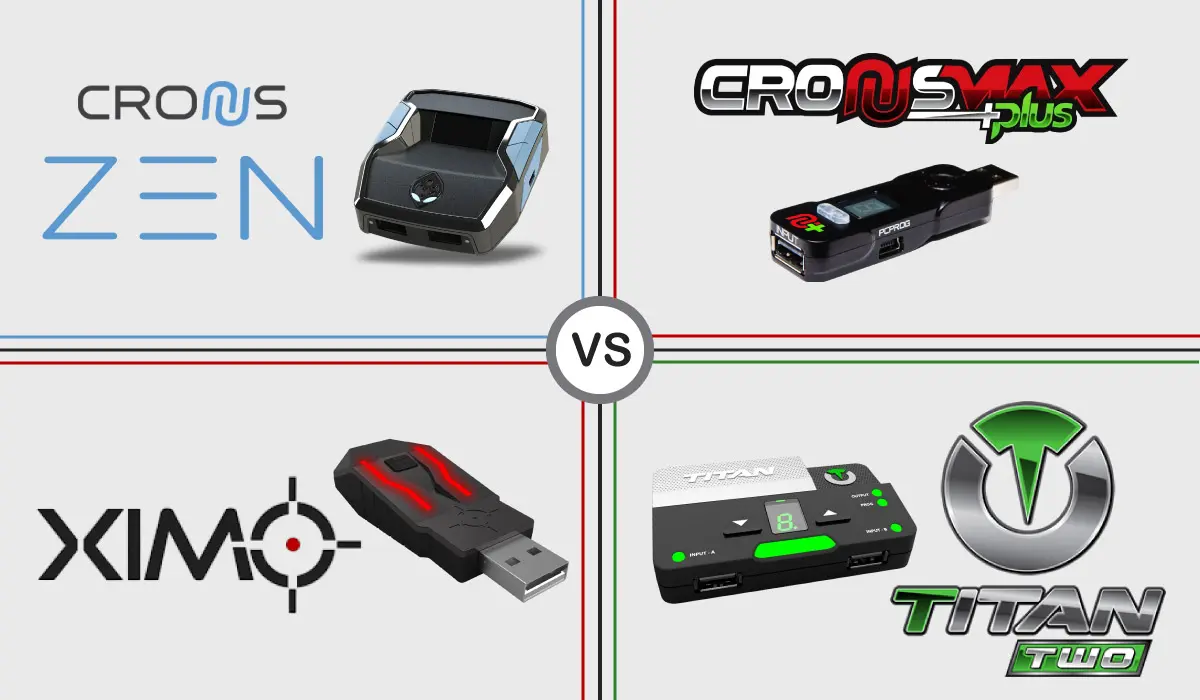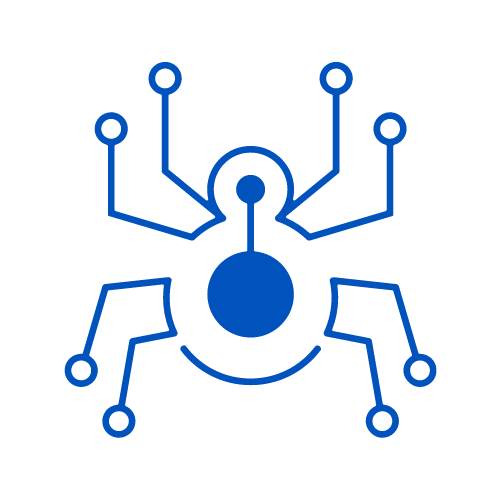AI Game Cheating and Windows API Cheating: The Role of AI Tools

The rise of artificial intelligence (AI) has significantly impacted various sectors, including the gaming industry. AI tools like ChatGPT are being used not only for enhancing gaming experiences but also for creating and facilitating game cheats. This article explores how AI is being leveraged for game cheating, particularly through Windows API manipulation, and the ethical implications of using AI tools like ChatGPT for such purposes.
AI in Game Cheating
AI tools have been increasingly used to develop game cheats, particularly in competitive online games. These cheats can range from simple scripts to complex programs that manipulate game mechanics. AI can automate the process of finding vulnerabilities in games, making it easier and faster to develop cheats. For instance, AI recognition technology has been used to create cheats for first-person shooter (FPS) games, significantly reducing the time required for development[3].
Windows API Cheating
Windows API (Application Programming Interface) cheating involves manipulating the Windows operating system's APIs to gain an unfair advantage in games. This can include altering game data, automating actions, or bypassing game security measures. AI tools can assist in identifying and exploiting these APIs, making it easier for cheaters to implement their hacks.
Role of ChatGPT and Similar AI Tools
AI language models like ChatGPT can be used to assist in coding and updating cheats. For example, developers might use ChatGPT to update offsets in their code, which are essential for maintaining the functionality of cheats after game updates[3]. While ChatGPT itself does not create cheats, it can provide guidance and code snippets that facilitate the cheating process.
Ethical Implications
Using AI tools for game cheating raises significant ethical concerns. It undermines the integrity of competitive gaming and can lead to unfair advantages. Moreover, it can damage the gaming community by fostering a toxic environment where trust between players is eroded. Game developers are continuously working to combat cheating by implementing anti-cheat systems, but the rapid development of AI-assisted cheats poses a significant challenge[1][2].
Anti Cheat Systems
Anti-cheat systems are crucial in maintaining fair play in online gaming by detecting and preventing cheating. Here is an in-depth look at some of the most prominent anti-cheat systems: Vanguard, BattlEye, Easy Anti-Cheat, FACEIT, and PunkBuster.
Riot Vanguard
Riot Vanguard is the anti-cheat system developed by Riot Games for Valorant. It operates at the kernel level, providing it with deep access to the system to detect cheats effectively. This level of access allows it to monitor for unauthorized modifications and suspicious activities in real-time. Vanguard uses a combination of behavioral analysis, machine learning, and heuristics to identify and block cheats. Despite its effectiveness, Vanguard has faced criticism for its intrusive nature, as it runs continuously in the background, even when the game is not active.
BattlEye
BattlEye is a widely-used anti-cheat system known for its robust detection methods. It operates by implementing a combination of generic protection mechanisms and game-specific detections. BattlEye uses a Windows kernel driver, BEDaisy, to prevent unauthorized modifications to the game. It performs memory scanning and pattern recognition to detect known cheats and anomalies. Additionally, BattlEye employs shellcode streaming to update its detection capabilities dynamically. This system is known for its effectiveness in preventing a wide range of cheating techniques.
Easy Anti-Cheat
Easy Anti-Cheat (EAC) is another industry-leading anti-cheat service that employs hybrid anti-cheat mechanisms. EAC focuses on preventing cheating at its root by using advanced prevention techniques rather than relying solely on detection and banning. This approach aims to create a healthier gaming community by reducing false positives and encouraging fair play. EAC is designed to be non-invasive and is trusted by many game developers to protect multiplayer games.
FACEIT Anti-Cheat
FACEIT's anti-cheat system is known for its effectiveness in competitive gaming environments. It operates at the kernel level, allowing it to detect cheats that other systems might miss. FACEIT has implemented additional security measures, such as requiring TPM 2.0 and Secure Boot on suspicious accounts, to enhance its detection capabilities. The system is continuously updated to address new cheating methods, including Direct Memory Access (DMA) cheats. FACEIT's anti-cheat is particularly popular in games like Counter-Strike: Global Offensive due to its ability to maintain a low level of cheating incidents2.
PunkBuster
PunkBuster is one of the older anti-cheat systems, initially developed for games like Battlefield. It uses a combination of client-side and server-side components to detect cheats. PunkBuster scans the player's system for known cheat signatures and monitors gameplay for suspicious behavior. It also employs real-time memory scanning and can take screenshots for further analysis. While less prevalent in modern games, PunkBuster laid the groundwork for many of the anti-cheat technologies used today.
Each of these anti-cheat systems employs a unique combination of techniques to detect and prevent cheating in online games. While kernel-level access provides powerful detection capabilities, it also raises privacy concerns among players. As cheating methods continue to evolve, anti-cheat systems must adapt and improve to maintain the integrity of competitive gaming environments.
External Monitors with Ai
Key Factors for Choosing an MSI Monitor with Built-in AI
- AI Features and Capabilities: Look for monitors with AI features like MSI's SkySight, which uses machine learning to enhance gameplay by detecting enemy positions.
- Display Technology: Consider the type of display technology, such as QD-OLED, which offers superior color accuracy and contrast for an immersive gaming experience.
- Gaming Enhancements: Check for additional gaming enhancements powered by AI, such as noise cancellation for clearer communication with teammates.
- Ethical Considerations: Be aware of the ethical implications of using AI features that may provide unfair advantages in competitive games.
Cheating in video games has been a persistent issue, particularly in online multiplayer environments where it can significantly impact the gaming experience. Here are some notable in-game cheats and the games they are associated with:
Popular Forms of Cheating
- Aim Bots: These are programs that automatically aim and shoot for the player, ensuring perfect accuracy. Aim bots are commonly used in first-person shooter (FPS) games like Call of Duty and Counter-Strike: Global Offensive.
- Wallhacks: This cheat allows players to see through walls and other obstacles, giving them an unfair advantage by revealing enemy positions. Wallhacks are prevalent in games like Valorant and Rainbow Six Siege.
- Speed Hacks: These cheats increase the player's movement speed, allowing them to move faster than intended by the game mechanics. Speed hacks are often seen in games like Fortnite and PUBG.
- Scripts and Bots: These are automated programs that perform actions on behalf of the player, such as farming resources or executing complex maneuvers. They are commonly used in games like World of Warcraft and League of Legends.
Notable Cheat Codes in Video Game History
- Konami Code: Perhaps the most famous cheat code, it has appeared in over 100 games, starting with Gradius. The code typically grants extra lives or power-ups.
- GTA Series Cheats: The Grand Theft Auto series is known for its extensive list of cheats, such as spawning vehicles, lowering wanted levels, and altering game physics. These cheats add an extra layer of fun to the open-world chaos.
- Doom's God Mode: The cheat code "IDDQD" grants invincibility in the classic game Doom, allowing players to explore levels without fear of dying.
- Sonic the Hedgehog Debug Mode: This cheat allows players to manipulate game elements, effectively turning the game into a level editor. It's a nostalgic favorite among fans of the series.
Games with High Cheat Incidences
- Minecraft: Known for its creative freedom, Minecraft is also the most cheated game, with players using mods and hacks to alter gameplay.
- The Sims 4: Players often use cheats to gain unlimited money (Simoleons) or to fulfill Sims' needs instantly.
- GTA V: The game continues the series' tradition of cheats, with players using codes to spawn vehicles and alter in-game conditions.
- Fortnite: Despite its competitive nature, Fortnite sees a significant amount of cheating, including the use of aim bots and wallhacks.
Cheating remains a significant challenge in the gaming industry, prompting developers to continuously innovate anti-cheat measures to preserve fair play and maintain the integrity of their games.
Cronus Zen
The Cronus Zen and similar devices have become a significant issue in the gaming community due to their ability to facilitate cheating in various games. These devices are often used to gain unfair advantages by modifying gameplay mechanics. Here's an overview of the issues associated with Cronus Zen and Zen cheaters:



What is Cronus Zen?
Cronus Zen is a hardware device that connects to gaming consoles and PCs, allowing users to run scripts or macros that can automate and enhance gameplay actions. It is often marketed as a tool for universal controller compatibility and accessibility, but it is widely used for cheating purposes in multiplayer games.
Common Cheating Features
- Aim Assist and Aim Bots: Cronus Zen can enhance aim assist or simulate aim bot functionality by automatically adjusting the player's aim to improve accuracy in first-person shooters like Call of Duty and Apex Legends.
- Rapid Fire: This feature allows players to fire weapons at a faster rate than intended by the game, giving them a significant advantage in combat situations.
- Anti-Recoil: By reducing or eliminating weapon recoil, players can maintain accuracy while firing continuously, which is particularly advantageous in competitive shooting games.
- Macro Scripts: These scripts automate complex sequences of actions, such as perfect timing in sports games or executing difficult maneuvers in fighting games, providing an edge over other players.
Impact on Gaming Communities
- Competitive Integrity: The use of Cronus Zen undermines the integrity of competitive gaming by allowing players to gain advantages that are not based on skill. This has led to frustration among players who compete fairly.
- Ethical Concerns: The widespread use of these devices raises ethical questions about fair play and sportsmanship. Many players and developers view the use of such devices as cheating, even if they are technically legal due to their hardware nature.
- Game Developers' Response: Game developers and console manufacturers have taken steps to combat the use of Cronus Zen. For example, Sony and Microsoft have implemented measures to block unauthorized hardware from connecting to their consoles, and game developers like Activision and Ubisoft have updated their anti-cheat systems to detect and penalize the use of such devices.
Challenges in Addressing the Issue
- Detection Difficulties: Detecting the use of hardware-based cheats like Cronus Zen is challenging because they do not alter the game software directly. Instead, they simulate legitimate controller inputs, making it hard for traditional anti-cheat systems to identify them.
- Legal and Technical Barriers: While some companies have started blocking these devices, the legal and technical complexities involved in enforcing such bans mean that cheaters can often find workarounds or continue using the devices with compliant controllers.
In conclusion, the Cronus Zen and similar devices pose a significant challenge to maintaining fair play in online gaming. While efforts are being made to curb their use, the gaming industry continues to grapple with the ethical and technical challenges they present.
Additional Video Game Cheating Devices
In addition to the Cronus Zen, several other devices are known for facilitating cheating in video games by providing players with unfair advantages. These devices are often used in console gaming and have sparked significant debate regarding their impact on fair play. Here are some notable devices similar to the Cronus Zen:

Cronus Max
Cronus Max is an earlier version of the Cronus Zen and offers similar functionalities. It allows users to use any controller on any console, run scripts, and apply mods to enhance gameplay. Although it is an older device, it still finds use among gamers who seek to modify their gaming experience.
Titan One and Titan Two
Titan One and its successor, Titan Two, are devices that offer similar capabilities to the Cronus Zen. These devices allow users to run scripts and macros, which can automate actions and provide advantages such as rapid fire and anti-recoil in shooting games. Titan Two is compatible with current-generation consoles and offers more advanced features compared to Titan One.
XIM Apex
XIM Apex is a device that enables the use of a keyboard and mouse on consoles by translating these inputs into controller signals. While it is primarily designed to provide a more PC-like gaming experience on consoles, it is often used to gain an advantage in first-person shooters by leveraging the precision of a mouse over a traditional controller.
ReaSnow S1
ReaSnow S1 is another adapter that allows players to use a keyboard and mouse on consoles. Similar to the XIM Apex, it is used to enhance aiming precision in games, which can be perceived as providing an unfair advantage in competitive settings.
Impact and Controversy
The use of these devices has led to significant controversy in the gaming community. They are often seen as tools that undermine the integrity of competitive gaming by providing players with advantages that are not based on skill. As a result, console manufacturers like Sony and Microsoft have taken steps to block these devices from connecting to their systems, and game developers have implemented measures to detect and penalize their use.These devices highlight the ongoing challenges in maintaining fair play in online gaming environments, as they blur the lines between legitimate accessibility tools and cheating aids. The debate continues as the gaming industry seeks to balance innovation with the need to preserve competitive integrity.
Hardware Video Game Hacking
There are several hardware devices and methods that players can use to gain unfair advantages in video games, similar to how software cheats operate. These hardware-based cheats can be particularly challenging to detect and counteract. Here are some notable examples:
Mouse and Keyboard Hacks
- Modded Mice and Keyboards: Some players use modified mice and keyboards that have built-in scripts or macros to automate actions, such as rapid firing or recoil control. These devices can be programmed to execute complex sequences of actions with a single button press, giving users a significant advantage in fast-paced games.
- BadUSB Exploits: This involves modifying a USB device, such as a mouse, to include a hidden USB hub that can execute scripts when plugged into a computer. This method can be used to run cheat programs stealthily, as described in a case where a mouse was modified to execute cheats in Counter-Strike: Global Offensive using the BadUSB vulnerability.
Monitor Hacks
While monitors themselves are not typically used to execute cheats, certain features can indirectly provide advantages:
- High Refresh Rates and Low Response Times: Monitors with high refresh rates (e.g., 144Hz or higher) and low response times can give players smoother and more responsive gameplay, which can be advantageous in competitive settings.
- Adaptive Sync Technologies: Features like G-Sync and FreeSync reduce screen tearing and stuttering, providing a smoother visual experience that can enhance performance in fast-paced games.
Other Hardware Cheats
- Cronus Zen and Cronus Max: These devices allow users to run scripts and macros on consoles, enabling features like rapid fire, anti-recoil, and aim assist. They are widely used in games like Call of Duty and Fortnite.
- XIM Apex: This device allows players to use a keyboard and mouse on consoles, which can provide a significant advantage in aiming precision over traditional controllers.
- Titan One and Titan Two: Similar to the Cronus devices, these allow for scripting and macros, offering enhanced control and automation of gameplay actions.
- Direct Memory Access (DMA) Devices: These devices use a secondary computer to execute cheats like aimbots and ESP (extra-sensory perception) without directly interacting with the gaming PC's software, making them harder to detect.
These hardware-based cheats pose a significant challenge to maintaining fair play in gaming, as they often operate outside the scope of traditional software-based anti-cheat systems. Game developers and console manufacturers are actively working to detect and block such devices to preserve the integrity of competitive gaming environments.
Other Video Game Hacking Techniques:
Users can manipulate software and exploit glitches in various ways, often using techniques that differ from traditional hacking methods. Here's an overview of some common methods used to exploit software glitches and hacking techniques:
Exploiting Software Glitches
- Bug Exploitation: Players often exploit bugs or glitches in a game's code to gain advantages. These can include duplicating items, bypassing level restrictions, or gaining invincibility. Such exploits are usually unintended by developers and can be patched once discovered.
- Glitching: This involves taking advantage of flaws in a game's physics or mechanics to achieve unintended results, such as clipping through walls or accessing out-of-bounds areas. Glitching is often used in speedrunning to complete games faster than intended.
- Save Game Manipulation: By altering save game files, players can modify game states, such as inventory or character stats, to gain advantages. This is more common in single-player games where anti-cheat measures are less stringent.
Hacking Techniques
- Phishing: This technique involves tricking users into revealing sensitive information, such as login credentials, by pretending to be a trustworthy source. Phishing is often used to gain unauthorized access to accounts.
- SQL Injection: Attackers exploit vulnerabilities in a web application's database by injecting malicious SQL code, allowing them to access, modify, or delete data.
- Cross-Site Scripting (XSS): This involves injecting malicious scripts into web pages viewed by other users, enabling attackers to steal session cookies or impersonate users5.
- Zero-Day Exploits: These are attacks that exploit vulnerabilities unknown to the software vendor. They are particularly dangerous because there are no existing patches to fix the vulnerabilities at the time of the attack5.
- Drive-by Downloads: These occur when a user visits a compromised website that automatically downloads malicious software onto their device without consent.
Advanced Exploitation Techniques
- Chaff Bugs: A defensive technique where non-exploitable bugs are intentionally added to software to mislead attackers, causing them to waste resources on non-viable exploits.
- Exploit Chains: Attackers use a series of exploits in succession to gain deeper access to a system, often starting with low-level access and escalating privileges.
- Man-in-the-Middle (MitM) Attacks: These involve intercepting and altering communications between two parties without their knowledge, often to steal data or inject malicious content5.
These methods highlight the diverse ways in which users can manipulate software and exploit vulnerabilities. While some techniques are used for benign purposes, such as speedrunning, others pose significant security threats and require robust defenses to prevent exploitation.
Conclusion
The use of AI tools like ChatGPT in game cheating highlights the dual-edged nature of technological advancements. While AI can enhance gaming experiences, it also presents new challenges in maintaining fair play. The gaming industry must continue to innovate and develop robust anti-cheat measures to counteract the misuse of AI in gaming. Moreover, there is a need for ethical guidelines and education on the responsible use of AI tools to prevent their exploitation in gaming and other sectors.
Citations:
[1] https://www.reddit.com/r/VACsucks/comments/zxi3o9/i_asked_chatgpt_about_cheating_issue_in_video/
[2] https://www.scribbr.com/ai-tools/chatgpt-cheating/
[3] https://www.unknowncheats.me/forum/valorant/613717-tried-using-ai-create-game-cheats.html
[4] https://www.sciencedirect.com/science/article/pii/S0268401223000233





